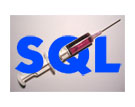Who decides what health data is sensitive?
The massive UC Berkeley data breach reported last week exposed the sensitive health information of more than 160,000 Berkeley students, alumni and others who used the school’s health system. Berkeley officials said that the breach did not expose the victims’ treatment information, an assertion that is leaving some security experts wondering exactly what constitutes sensitive data.
















